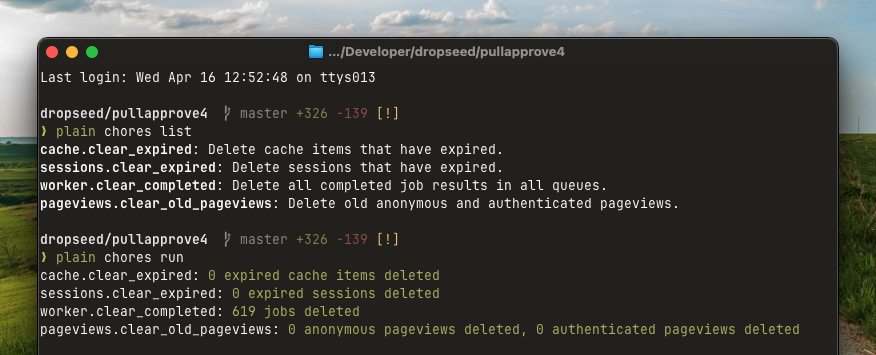Chores
Routine maintenance tasks.
Chores are registered functions that can be run at any time to keep an app in a desirable state.

A good example is the clearing of expired sessions in plain.sessions — since the sessions are stored in the database, occasionally you will want to delete any sessions that are expired and no longer in use.
# plain/sessions/chores.py
from plain.chores import register_chore
from plain.utils import timezone
from .models import Session
@register_chore("sessions")
def clear_expired():
"""
Delete sessions that have expired.
"""
result = Session.objects.filter(expires_at__lt=timezone.now()).delete()
return f"{result[0]} expired sessions deleted"
Running chores
The plain chores run command will execute all registered chores. When and how to run this is up to the user, but running them hourly is a safe assumption in most cases (assuming you have any chores — plain chores list).
There are several ways you can run chores depending on your needs:
- on deploy
- as a
plain.workerscheduled job - as a cron job (using any cron-like system where your app is hosted)
- manually as needed
Writing chores
A chore is a function decorated with @register_chore(chore_group_name). It can write a description as a docstring, and it can return a value that will be printed when the chore is run.
# app/chores.py
from plain.chores import register_chore
@register_chore("app")
def chore_name():
"""
A chore description can go here
"""
# Do a thing!
return "We did it!"
A good chore is:
- Fast
- Idempotent
- Recurring
- Stateless
If chores are written in app/chores.py or {pkg}/chores.py, then they will be imported automatically and registered.